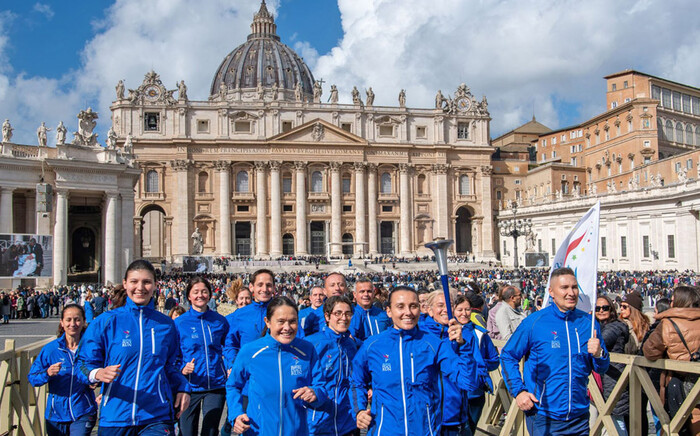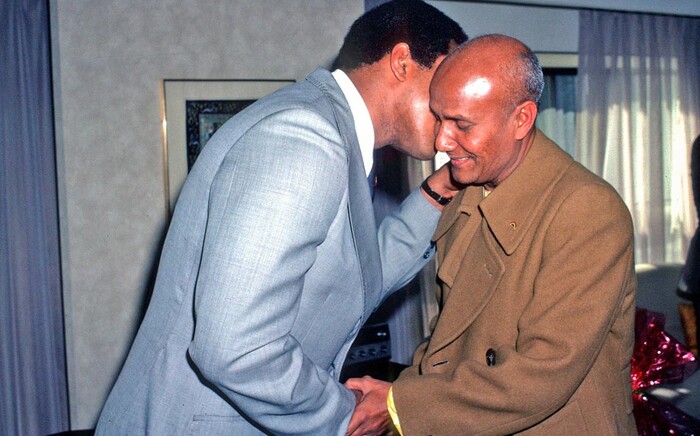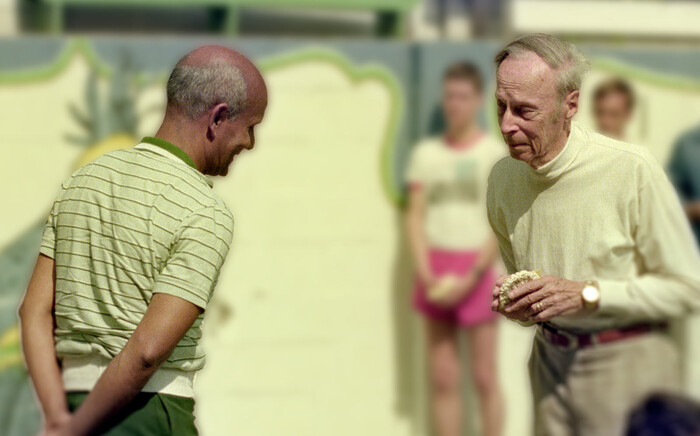 I had a cool friend at art school. His name was Stefan and he played guitar and sang: 60s and 70s rock only. He was tall and thin and moved with feline grace. Was he a hippy in an age of grunge rockers? You bet. One night his band played at the James Cook Tavern, a local blues rock haunt. Somehow they were a little off, not quite as groovy as they sounded at the parties they liked to play at. The first song of their set was Time, by Pink Floyd. After a few intro bars, Stefan stepped up to the microphone to sing the first ragged, desperate lines: “Tickin’ away / The moments that make up a dull day”... Suddenly he was motioning the band to stop. “No, no, I can’t do this one tonight. Sorry.” Was the band not getting it right? Were they playing out of time? Or was it just the wrong time? Were those lyrics simply too heavy for Stefan’s delicate artistic temperament that night?
I had a cool friend at art school. His name was Stefan and he played guitar and sang: 60s and 70s rock only. He was tall and thin and moved with feline grace. Was he a hippy in an age of grunge rockers? You bet. One night his band played at the James Cook Tavern, a local blues rock haunt. Somehow they were a little off, not quite as groovy as they sounded at the parties they liked to play at. The first song of their set was Time, by Pink Floyd. After a few intro bars, Stefan stepped up to the microphone to sing the first ragged, desperate lines: “Tickin’ away / The moments that make up a dull day”... Suddenly he was motioning the band to stop. “No, no, I can’t do this one tonight. Sorry.” Was the band not getting it right? Were they playing out of time? Or was it just the wrong time? Were those lyrics simply too heavy for Stefan’s delicate artistic temperament that night?
“You are young and life is long and there is time to kill today. And then one day you find ten years have got behind you.” These lyrics come a little later in that same song. I remember hearing them when I was eighteen, at a friend's place. Life was long, and there was time to kill that day. But suddenly I felt shockingly aware of my own mortality. The lyrics struck to the core of my being, and I felt alone and afraid. The reality, the inevitability of the passing of time pressed in on me, and with it the sure knowledge that one day my life would come to an end. The passing minutes and hours that the clock marks never come back, and we only get so many of them in a lifetime. I don't know if I had ever really thought much about my own death before. When you are eighteen, death is usually something that happens to other people, older people—people not clever enough to be teenagers.
Now, some years later, I look back at the decade just gone, and wonder where it all went. Ten years have got behind me. Just when I was getting into it.
It seems that, on the whole, most people resent time, if not fear it. We’d like to remain in our prime forever, enjoying ourselves, and our friends, and life in general. Time often brings with it a gradual deterioration of our condition, until we are in no state to enjoy anything. What kind of a friend is time?
But where would we be without time? If we enjoyed immortality here on earth, would we ever get around to doing anything? What would be the point? It is our very mortality that compels us to try and knit the universe into some kind of garment we can wear. What is the meaning of this candle flame of existence we have been given? Have been given, along with the knowledge that the flame will be extinguished? And who is the giver and taker of the flame? How do we make sense of the Everything all around us—and the Nothing we fear may follow it, at the end of our “time”?
Here is the root of all humanity’s philosophy and faiths, and most of its -isms. We are mortal, and don’t really care for this inescapable fact. We struggle, and have always struggled, with the apparent monumental injustice of it all.
“Let us not waste time.
If we waste time,
Time will not only waste us
But also destroy us.”
—Sri Chinmoy
And the terrible thing is, time-wasting is all many of us do. How does one truly “seize the day”, as the Roman poet Horace exhorted us to?
“As a spiritual seeker, you should always regard time as a great friend of yours and always try to be worthy of your friendship with time. If you appreciate, admire and adore the illumining and perfecting capacity that time has to inspire you constantly, to increase your aspiration-flames and brighten your surrender-light, then you will run the fastest toward the ultimate Goal.”
—Sri Chinmoy
So time can be our friend after all. Just so long as we don't waste it! Too often we are just “passing the time”, instead of using it properly.
“To the unaspiring man time is a plaything; to the seeker it is something that he counts upon; to the advanced seeker it is something that he longs to transcend; and to a God-realised man time is something he uses to manifest God in God’s own way.”
—Sri Chinmoy
I haven’t seen Stefan for many years now. I wonder if he is still in love with the same music, and wearing paisley print shirts. I guess I'll never know why he stopped playing that song that night. But I fancy it was because the words filled him with the same unwelcome awareness of mortality as they did me. I hope he has learned to appreciate time as a friend, and not something to fear, or merely squander. I hope we all can.





















 I had a cool friend at art school. His name was Stefan and he played guitar and sang: 60s and 70s rock only. He was tall and thin and moved with feline grace. Was he a hippy in an age of grunge rockers? You bet. One night his band played at the James Cook Tavern, a local blues rock haunt. Somehow they were a little off, not quite as groovy as they sounded at the parties they liked to play at. The first song of their set was Time, by Pink Floyd. After a few intro bars, Stefan stepped up to the microphone to sing the first ragged, desperate lines: “Tickin’ away / The moments that make up a dull day”... Suddenly he was motioning the band to stop. “No, no, I can’t do this one tonight. Sorry.” Was the band not getting it right? Were they playing out of time? Or was it just the wrong time? Were those lyrics simply too heavy for Stefan’s delicate artistic temperament that night?
I had a cool friend at art school. His name was Stefan and he played guitar and sang: 60s and 70s rock only. He was tall and thin and moved with feline grace. Was he a hippy in an age of grunge rockers? You bet. One night his band played at the James Cook Tavern, a local blues rock haunt. Somehow they were a little off, not quite as groovy as they sounded at the parties they liked to play at. The first song of their set was Time, by Pink Floyd. After a few intro bars, Stefan stepped up to the microphone to sing the first ragged, desperate lines: “Tickin’ away / The moments that make up a dull day”... Suddenly he was motioning the band to stop. “No, no, I can’t do this one tonight. Sorry.” Was the band not getting it right? Were they playing out of time? Or was it just the wrong time? Were those lyrics simply too heavy for Stefan’s delicate artistic temperament that night?